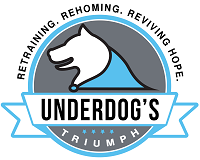
I have written in the past about where you should get your next furry family member from (see post about Puppies here) but I know that some folks still desire the “purebred” puppy route. While there are tons, and tons of puppies (and dogs!) available at your local shelter, you might need to be patient and search a larger area to find one that meets your lifestyle and desires for a companion. I will always say SAVE A LIFE and adopt your next family member.
There are so many terrible dog breeders out there that it’s difficult to determine even where to begin if you do decide to purchase a dog or puppy. Some reasons for doing so might be if you desire to show a dog or compete in certain dog competitions that require a “purebred” dog. I use “purebred” in quotes only because a lot of the so call purebred dog that are acquired from these unreputable breeders are anything but.
This facebook post had a great summary of thirteen things you should evaluate breeders of dogs on. I’ve highlighted the ones I especially like below (the ones I skipped don’t apply to the US).
- Unethical breeders tend to sell via the internet. Facebook, Preloved, Gumtree and others are all places that they advertise. Google the person’s phone number, username or email address. See if you can find other ads posted by them.
Unethical breeders breed for profit. They mass produce dogs, sometimes on an infeasible scale and ship their puppies all over the country/world to make the quick buck. They don’t care about where their dogs end up, or if they live out a life in pampered comfort. They want the cash for their “crop”.
- They don’t ask anything about you. Ethical breeders want to know everything about you, your family, your experience with dogs etc etc. They will insist that you visit the pups several times. If you are not questioned lots then you need to worry.
Again, that buck is calling. They don’t worry about who you are or what you want to do with the dog. They won’t tell you about the breed your buying or ask if you’ve had these dogs in the past. A lot of folks have run into issues with that getting a breed they are totally unprepared for because a) they didn’t do their own homework first and b) the breeder sold a puppy to an unprepared family purely for profit. The so called “wolfdogs” are a great example of a breed that quickly gets people in over their heads. Turns out owning a wolf is 10,000% different than owning a dog.
- Sheds… Don’t buy a puppy that has been reared in a shed at the end of the garden. That pup would have missed out on essential socialization and habitation.
Money. Money. Money. It costs to afford a fancy facility or to convert your own home into an area that can support, care and raise/socialize new puppies. Those who mass produce dogs or even who just do a few litters a year in their back yard or shed away from all the “normal” experiences a dog will encounter (children, adults, vacuums, laundry machines, tv, etc) stunt their puppies socialization period significantly. This stunted level of experience leaves you at a disadvantage and at risk of developing a reactive or fearful adult dog.
- Meeting places. Unethical breeders and dog traders will sometimes offer to meet you somewhere to ‘save you the trip’. Always insist that you go to their home. Never buy a pup in a car park (parking lot).
ALWAYS ask to see where the puppy was raise. Check out the other liters (if present). See how the mothers and fathers are treated. So many breeders will offer to meet you elsewhere to avoid having you see the squalor your puppy was raised in and the hell the puppy’s parents are trapped in.
- Ethical breeders will never ever sell a pup before it is 8 weeks. Check the puppy that you are buying to make sure that he or she is over 8 weeks.
Seriously. 8 weeks minimum. 12 weeks preferred. Good breeders know all about how important socialization is for their pups, and keeping them a bit longer with their parents gives the puppy a headstart on knowing how to be a dog. Plus good breeders have socialization programs in place to provide you with a puppy who has had a great, diverse positive experience in his or her life so far and is ready and prepared with the skills necessary to tackle the real world.
- Worming and flea treatment should have been done. Ask for dates and products used.
Lack of shots or vaccine records is an indication of a breeder that is cutting costs to maximize profit. They don’t care about their wards and are only in it to make a quick buck. Ask for the parent records too. A few of the terrible breeders I know of in our area only vaccine the puppies and the parents are left to suffer from untreated flea/tick and worm infestations.
- Ask to see photos of your pup from birth until now… puppy farmers and dealers won’t have those photos.
For those of you who currently have a beloved furry family member, I challenge you to open up your phone. How many dog/cat/pet pictures do you have? If you’re like me, I bet it’s a totally reasonable amount 😉 Puppies especially have tons of photos because they are so damn cute! Breeders who raise their puppies in sheds have their “for sale” photo and maybe a photo of their parents. And that’s it. The breeders weren’t present in their puppies’ lives and the lack of photos shows that.
- Question at length…. and walk away if you are concerned about the answers, or lack of answers.
Seriously. Walk away. I know it’s hard. I know you want to “save” the sad little puppy in the window of a car or in the walmart parking lot. But do not. Your money goes right back into ensuring these breeders stay in business. That they create more puppies with more parents who suffer their entire lives trapped in a cage. Do not let the cycle continue.
- Always see Mum- the actual Mum. The real Mum will have milk and will be interacting with her pups. Fake Mum wont. Ask to see photos of Mum over the years.
Mom and puppies should be together. Mom should be in good health and happy. She shouldn’t be bred ever cycle or trapped in a cage. Check out her behavior. Is she nervous or fearful, overexcited or panicked? These are all signs that she’s not been socialized and is definitely not a member of the family and lives her life trapped making puppies for her owner’s profit.
- Genetic testing- ask what has been done and ask to see the results.
I cannot state this enough. The breeders I know that are terrible do NOT do genetic testing, as a result their puppies grow up to have terrible genetic diseases and disorders that end up costing you money or even your puppies life. The one breeder of Norwegian Elkhounds has a breeding line in which ALL of the adults have severe (and very painful) glaucoma. She was still breeding them despite the clear issue with the breeding line because “no one had ever complained.”
- Reduced prices for the last pup in the litter.. it’s just a way to pull you in and make you feel sorry for the remaining pup. Ethical breeders do not reduce their prices and often have homes lined up for their pups before they are born!
This is sure sign that the breeder is trying to dump their stock to make room for more. They want this puppy out of their care so they stop losing money trying to keep it alive. They’re willing to take a slight loss in the sales price to make an empty space for the next puppy which they can sell at full. The “last pup” sales tactic works well too and tugs at the heartstrings of new pet owners who can’t bear to think of a lone sad puppy all by him or herself.
In summary, the best way you can make sure you aren’t going to be supporting a terrible breeder and furthering the suffering of those puppy’s parents is to adopt. You’ll save a life and get an adorable fluffy as a bonus. Additionally, I challenge you to try and find a breeder who adheres to all of the above rules. It’s surprisingly difficult.
A person tale, to show that even with a strict vetting system you can still get into trouble buying from a breeder. My first ever family dog was a purebred sheltie name Kayla. I researched dozens of breeders in the area (and some that were 500+ miles away) with a very strict list of requirements. She was the only one who passed my inspector and we agreed to met her.
The one thing I had forgotten to ask her, as a child of only 15, was about the genetic testing of her line. Turns out her breeding line had a genetic marker for having severe drug sensitivities. These drug sensitivities result from a mutation in the multidrug resistance gene (MDR1 gene). As a result the heartgard medicine used monthly to prevent heartworm as recommended by our vet, killed her.
It still hurts to know that her death could have been prevent simply if the breeder had taken the time to test her own breeding stock. My mom had called her to tell her of Kayla’s death and she casually mentioned that a few of the other dogs in Kayla’s liter had also passed away from “unknown” causes. I would bet money that it was because of this genetic predisposition to drug sensitivities.
Kayla was only three years old at the time. One simple test could have saved her life, but to minimize expense this was skipped and we lost a beloved family member as a result. Adopt don’t shop people. Save yourself from the heartache.
